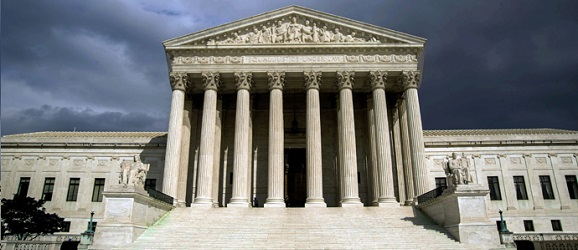Supreme Court Says Human Genes Cannot Be Patented, But…
This article is more than 2 years old
 It’s a rarity for the U.S. government to make a big decision that sits favorably within the scientific community, and it usually has to do with budget cuts or some other insanity. The U.S. Supreme Court came to a decision recently that reversed what should have initially been a no-brainer decision anyway.
It’s a rarity for the U.S. government to make a big decision that sits favorably within the scientific community, and it usually has to do with budget cuts or some other insanity. The U.S. Supreme Court came to a decision recently that reversed what should have initially been a no-brainer decision anyway.
The Salt Lake City company Myriad Genetics has held a patent on two genes, the BRCA1 and BRCA2, which cause breast cancer (and several other forms of cancer) when mutated, essentially making them the lone company able to run tests and do experiments with these particular genes. Despite allowing it in the past, the Supreme Court stepped in and unanimously ruled that isolated human genes are no longer allowed to be patented, which makes Myriad’s former patents moot, and means they can no longer hold a monopoly on that specific research. This “could result in increased competition, falling costs and greater access for low-income patients.” A victory for all, right?
Well, the flip side of this decision means synthetic DNA strands, also known as complimentary DNA (cDNA), can indeed be patented. “A naturally occurring DNA segment is a product of nature and not patent eligible merely because it has been isolated,” explained Justice Clarence Thomas, “but cDNA is patent eligible because it is not naturally occurring.” So this will still give companies like Myriad ways in which to keep their research and profits on the positive side, but will inevitably create future tensions once synthetic DNA becomes a better understood area of biotechnology and everyone else wants profits. You’re d(na)amned if you do and you’re d(na)amned if you don’t.











